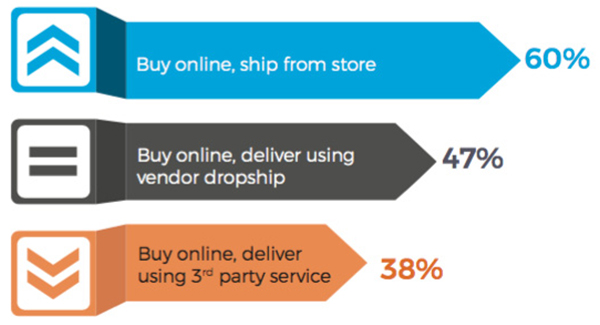Retailers Struggle to Control Fulfillment Costs

Walmart’s recent announcement that it is testing a delivery system where its associates will deliver online orders to customers’ doors makes sense in light of a new study by Radial, in partnership with EKN Research, which finds the average cost for a company to fulfill an order is 70 percent of the average order value.
Indeed, overcoming fulfillment challenges is critical Today, more than 55 percent of consumers use multiple channels—such as online and mobile—to shop, yet more than 40 percent of retailers describe fulfillment costs as a major challenge impacting their business, according to Radial’s Strategies for Agile, Profitable and Secure Omnichannel Execution study.
Further, 67 percent of retail CEO survey respondents say that costs to fulfill orders have increased over the past several years, with 37 percent citing that inventory order and supply chain operations are not properly aligned, resulting in rising costs.
To marry customer expectations with back-end efficiency, retailers have adopted new tactics, including non-traditional shipping solutions such as "buy online, pick up in store" and "buy online, ship from store."
Unfortunately, despite reducing costs slightly, complexities and hidden fees associated with process inefficiencies persist:
- 31 percent of retailers are challenged by split orders, where multiple products in one order must be shipped from different locations.
- 56 percent of retailers say their order management systems need to be able to process at higher volumes and velocity, and to source from a variety of channels.
- 40 percent of retailers have trouble automating order capture and processing, integrating inventory, and standardizing order management from different order types across channels.
With more than 35 percent of retailers still in the planning stages of deploying intelligent order technology, the industry is not moving quickly enough to meet demand in today’s fast-paced retail landscape.
One solution might be shifting responsibility to a fulfillment partner, the survey concludes.
